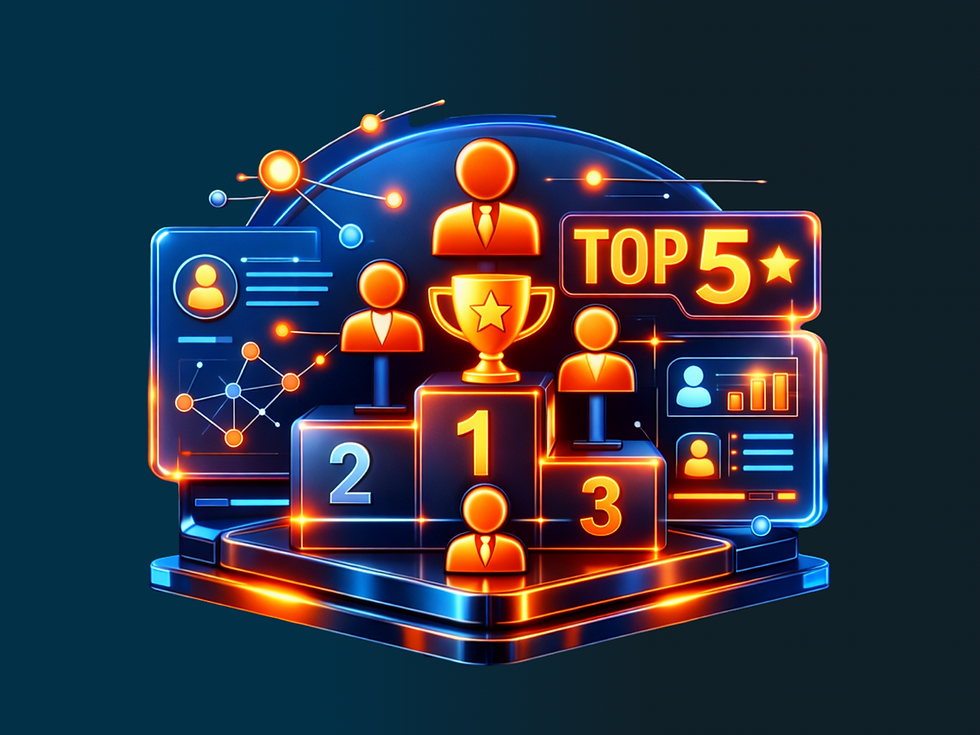The Ultimate Guide to HR Roles and Responsibilities
- Tamar Bosikashvili

- Sep 23, 2025
- 2 min read
Gone are the days when Human Resources was all about paperwork and contracts. In today’s world, the HR department is a strategic partner at the heart of every organization — focused on people, data, and decision-making that directly impacts growth.
Modern HR teams bring together professionals with different expertise, each playing a critical role in shaping culture, improving employee experience, and supporting business goals.
In this guide, we break down the key HR job titles and explain what each role is responsible for — helping you understand how a well-structured HR department works in practice.

HR Administrator
The Role:
The HR Administrator handles the core of day-to-day HR operations, ensuring everything runs smoothly behind the scenes. This role is common in medium and large companies where efficient coordination is essential.
Key Responsibilities:
Managing HR paperwork (contracts, onboarding documents, employee changes)
Maintaining HRIS (HR Information Systems)
Coordinating HR events and training sessions
Overseeing vacations and attendance tracking
Supporting compliance with labor laws and internal policies
HR Generalist
The Role: A well-rounded HR professional involved in multiple aspects of the employee lifecycle, HR Generalists are often found in small to mid-sized companies, where one person may wear several HR hats.
Key Responsibilities:
End-to-end recruitment and onboarding
Employee relations and conflict resolution
Supporting internal policies and compliance
Performance tracking and management
Coordinating compensation and benefits
Assisting with learning and development initiatives
HR ბიზნეს პარტნიორი (HRBP)
The Role:
A strategic role, working closely with specific departments or business units to align HR strategies with business goals. This position is most valuable in large or fast-scaling organizations.
Key Responsibilities:
Partnering with department heads to support workforce planning
Providing strategic input on organizational design and change management
Analyzing data to improve team performance and retention
Coach managers on employee engagement, performance, and development
HR Manager
The Role:
A mid- to senior-level role overseeing the HR function and daily operations. Usually reporting to a Head of HR / HR Lead.
Key Responsibilities:
Leading the HR team and evaluating performance
Planning and executing HR strategies
Managing HR budgets and processes
Monitoring compliance and employee-related risks
HR-ის დირექტორი / HR Lead
The Role: A senior HR leader involved in high-level planning, talent development, and cultural alignment — playing a key role in long-term business transformation.
HR Lead oversees the entire HR function across all areas and often across multiple teams or regions.
Key Responsibilities:
Defining the vision and strategy for the HR department
Overseeing all HR functions: recruitment, compliance, L&D, performance, etc.
Leading and mentoring the HR team
Representing HR at the executive level
Monitoring company culture and employee satisfaction
Advising executives on talent strategy

A strong HR department is the heart and a strategic driver of a company. From administrative tasks to executive leadership, every HR role contributes to building an empowered, compliant, and people-focused workplace.
That’s why having well-structured, transparent, and tech-enabled HR processes is one of the keys to modern business growth.

Want to see how HR automation can transform your organization? Book a free demo and explore Aisitec’s all-in-one HR system.



Comments